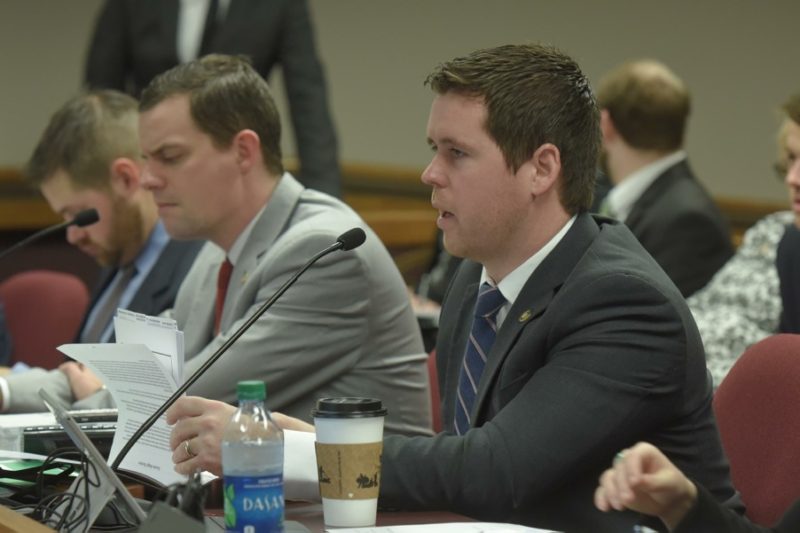JEFFERSON CITY, Mo. — Third time’s a charm, right? Well, Missourians will find out this legislative session with a bill aimed at changing the laws regarding unemployment compensation.
“Missouri is the only state that has habitually run out of money in its unemployment trust fund,” Rep. Scott Fitzpatrick, R-Shell Knob, the bill’s sponsor, said.
The bill — introduced into the Missouri House of Representatives for the third time — would tie the duration of unemployment benefits to the state’s average unemployment rate on a sliding scale.
“It makes sense when it’s easier to get a job, unemployment benefits don’t last as long,” Fitzpatrick said, “and when it’s hard to get a job, benefits last longer.”
Under the bill, if Missouri’s average unemployment rate is below 6 percent, benefits will last 13 weeks. If the rate is 9 percent or higher, benefits will last 20 weeks. In between those rates, the eligibility period drops one week for each half percent change in the jobless rate.
“We would be the second lowest in the country for benefits,” Rep. Doug Beck, D-St. Louis, said. Only Florida would be listed lower if the bill becomes law. Beck cited that most states have 26 weeks of benefits.
Fitzpatrick argued that it’s easier to qualify for jobless benefits in Missouri and that those states have more strict criteria.
Others on the committee point out that unemployment rates differ from city to city and between each county.
“This is a one size fits all bill,” Rep. Jim Hansen, R-Frankford, said, “and I don’t think it is a one size fits all issue.”
The bill is aimed at making the unemployment trust fund more solvent, according to Fitzpatrick.
“This is the wrong way to go,” Beck stated. “It is frustrating to see the constant bashing of workers in the state.”
If the arguments seem familiar, that’s because they are. The statement’s made in Tuesday’s Special Committee on Employment Security hearing eco those made in previous years — almost verbatim.
In 2015, the bill passed the House and Senate but was vetoed by then-Governor Jay Nixon. The House voted to override the veto in regular session and the Senate voted to override the veto in a later session. The bill was actually in effect for a portion of 2016, until it the Senate’s veto override was struck down by the Missouri Supreme Court.
Re-introduced in 2017, the bill passed the Missouri House but stalled in the Senate.
HB 1409 — the current draft of the legislation — would also allow for employers to recover overpayment due to an erroneous experience rating, raise the amount required in the Unemployment Compensation Fund before an employer’s contribution rate is decreased, modifies procedures for the Board of Unemployment Fund Financing to meet and consider the issuance of credit instruments to repay federal advances to the fund, and modifies the time employers shall pay the interest assessment on credit instruments.

Alisha Shurr was a reporter for The Missouri Times and The Missouri Times Magazine. She joined The Missouri Times in January 2018 after working as a copy editor for her hometown newspaper in Southern Oregon. Alisha is a graduate of Kansas State University.














